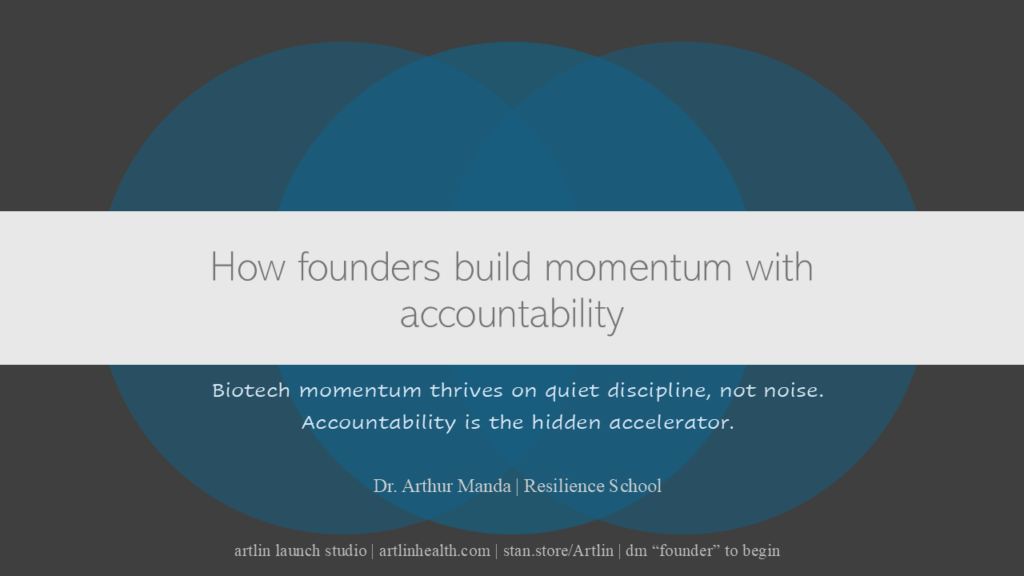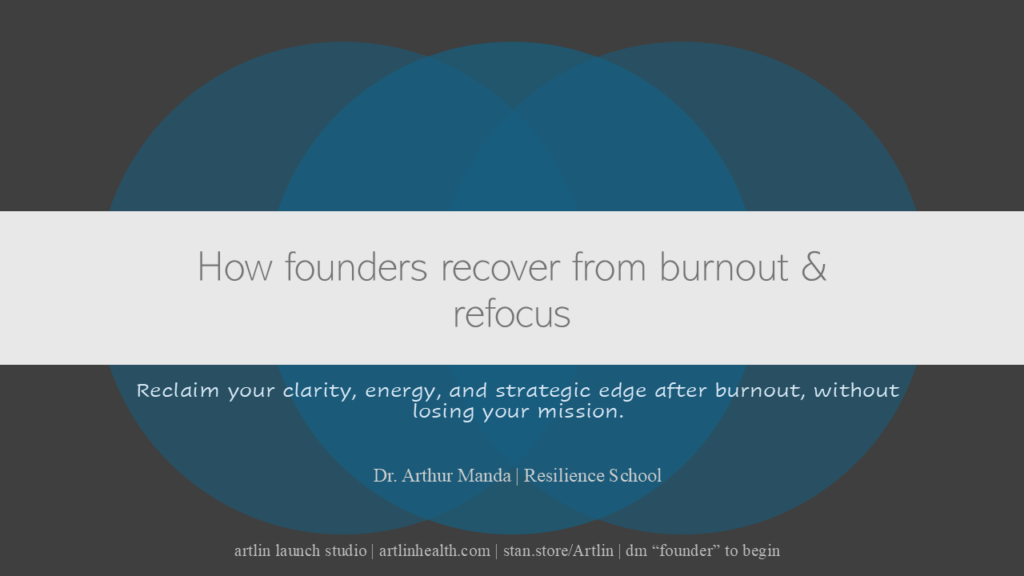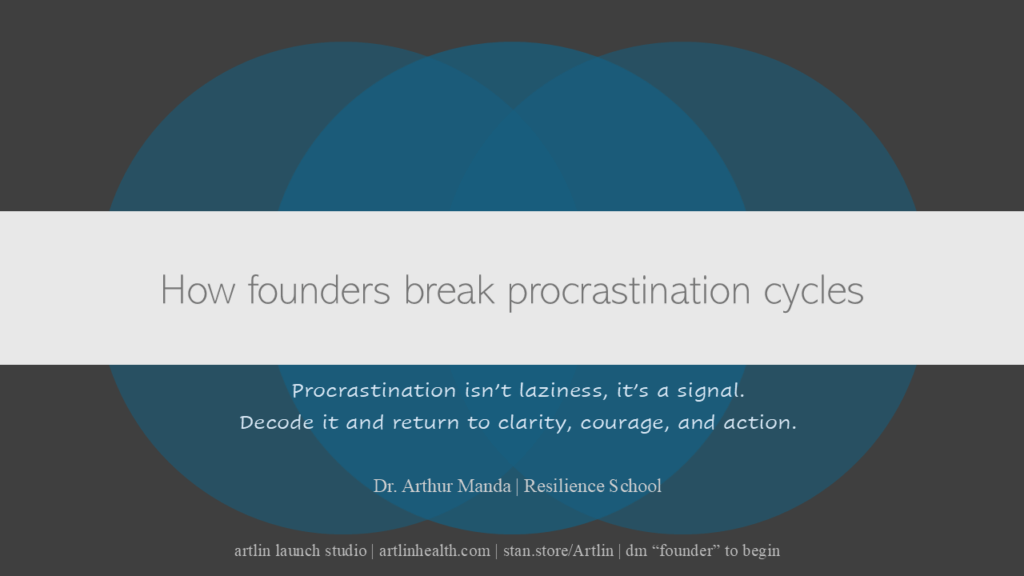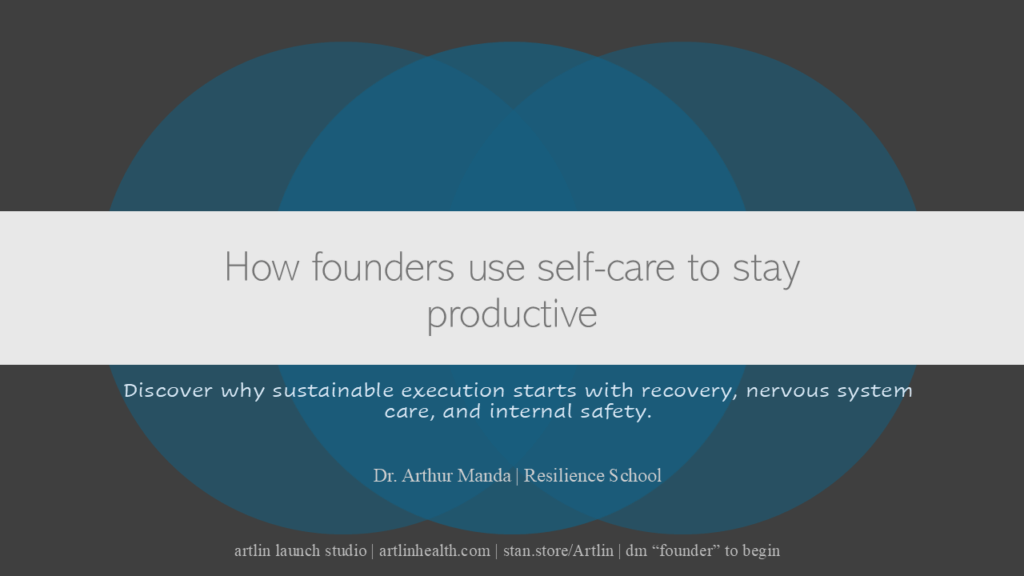In biotech, momentum isn’t just made in the lab — it’s made in your follow-through.
This module explores accountability not as external pressure, but as internal coherence, the structure that keeps your vision moving forward even when motivation fades or complexity rises.
Biotech founders don’t just need discipline — they need alignment, integrity, and sustainable feedback loops.
Accountability is not punishment — it’s self-trust
Too many founders associate accountability with shame, deadlines, or being “called out.”
But real accountability is about:
- Keeping promises to yourself
- Owning your decisions, without collapse
- Creating structures that hold you when willpower runs dry
- Aligning action with identity — not urgency
In biotech, the stakes are too high for reactive leadership.
Accountability makes your execution reliable — without forcing you into burnout.
Why founders struggle with accountability
- You’re leading alone — no one is tracking your inner world, only your output
- You’re overwhelmed — when everything feels important, nothing gets done
- You’re perfectionistic — you delay until it’s “ready,” but it never is
- You’re externally motivated — so when the applause fades, so does your drive
- You lack embodied clarity — your nervous system isn’t aligned with your next steps
Without accountability, momentum decays.
Without support, pressure compounds.
But when accountability is reframed as structure, everything changes.
Biotech founders need sovereign accountability systems
Here’s how to design one:
1. Anchor to identity, not goals
Don’t just aim to finish tasks. Ask: What kind of founder am I becoming by doing this?
2. Externalize the process
Write down micro-commitments. Share them. Speak them. Don’t leave them in your head.
3. Build feedback loops
Weekly reviews. Daily logs. Self-check-ins. These are data points for your evolution — not judgment.
4. Create friction-reducing systems
→ Default calendar blocks
→ Templates for repeated actions
→ Boundaries that protect deep work
The easier the flow, the less resistance to re-entry.
5. Call in relational accountability
Surround yourself with people who reflect your highest frequency — not just your current habits.
Declare your next move to someone who believes you’re capable of it.
Accountability builds founder gravity
When others experience you as consistent, clear, and aligned — they trust you.
Teams stabilize. Investors lean in.
You trust yourself, too — and your energy no longer leaks into avoidance.
Accountability is the invisible structure that lets biotech vision become biotech execution.
Ready to lead with consistency and calm?
This is what we practice inside Artlin Launch Studio (ALS).
In ALS, accountability is not about micromanagement — it’s about alignment scaffolding:
- Nervous system-based pacing
- Strategic tracking systems
- Internal congruence across vision, word, and action
DM “Launch Studio” or visit https://stan.store/Artlin
You don’t need more pressure. You need architecture.
This is how biotech founders stay in motion — without burning out.






